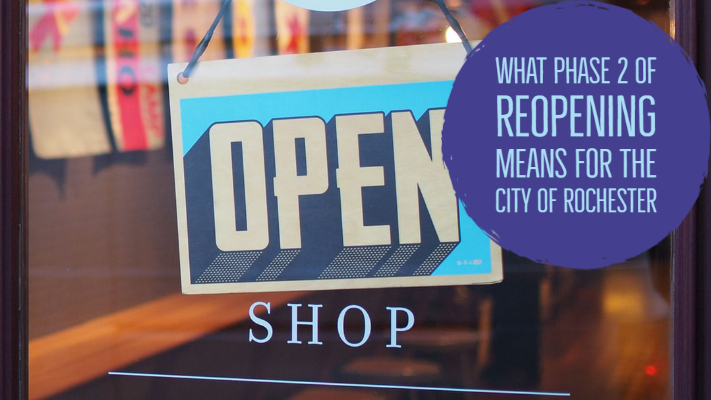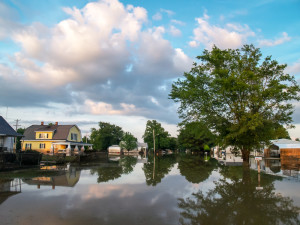 An uneasy feeling has plagued many citizens of Rochester since July 30, 2013, when New York State Governor Andrew Cuomo pushed for a measure to increase the number of casinos permitted in the state. It was his statement that the casinos were intended to boost local economies upstate that caused the most buzz: “Our focus has been to bring jobs and boost local economies in upstate New York, where decades of decline have taken their toll in our communities,” said Cuomo. In November, voters approved the referendum to allow for more casinos.
An uneasy feeling has plagued many citizens of Rochester since July 30, 2013, when New York State Governor Andrew Cuomo pushed for a measure to increase the number of casinos permitted in the state. It was his statement that the casinos were intended to boost local economies upstate that caused the most buzz: “Our focus has been to bring jobs and boost local economies in upstate New York, where decades of decline have taken their toll in our communities,” said Cuomo. In November, voters approved the referendum to allow for more casinos.
A month after that vote, whispers began in Seneca County when 13 WHAM reported that an unknown developer buying land along the Thruway had begun sending brokerage companies door to door offering homeowners six-figure payouts in exchange for their homes and properties. One homeowner, Jane Morelli, shared that the broker wouldn’t comment on the reason for his proposal, but that she was contacted days later about a public informational meeting to discuss a “proposed major development.” Morelli turned down the $150,000 offer for her home and is instead paying an attorney $225 an hour to help her preserve her family’s way of life.
Unfortunately, the Morellis’ story might soon become the stories of more upstate residents. The Western Regional Off-Track Betting Corporation recently announced its support of the Orleans County Legislature in its effort to block casino construction in Henrietta by the Seneca Nation of Indians. Western Regional OTB’s executive vice president and chief operating officer, Michael Nolan, shared, “An additional tax-free, Las Vegas-style gaming facility will oversaturate the market and adversely impact the operations of OTB, in turn causing financial harm to the 15 counties and two cities that own Western Regional OTB.”
Further news of the proposed Henrietta gambling establishment came in the form of robocalls to area residents warning of a “secret” meeting to advance a Seneca-run casino. They prompted more than a hundred concerned citizens to squeeze into Town Hall, ready to hear supervisor Jack Moore discuss the issue. “We do not have a proposal to discuss at this time,” he conceded. “But, we do welcome people’s input and will listen to anything you have to say.” Other speakers expressed the discontent of the group, like David Malone, who ventured, “I think there are a lot of bad results from gambling and gambling casinos. I think it would be bad for Henrietta.” His sentiments were echoed by Carol Burritt, who offered an opinion about the “No More Casinos Coalition” behind the robocalls. “I think they’re going about it rather secretly,” she told 13 WHAM. Sharing her misgivings about the construction of a Henrietta casino, she said, “I just don’t see it as a solution to public financing.”
The views of Malone and Burritt seem to reflect the general mood of the Greater Rochester area, where concerns about economic and social impact abound. In communities that have already experienced the controversial construction of casinos, the results have been less than ideal. When the Fallsview Casino became a fixture in the Niagara Falls area, just two counties west of Monroe, suicide rates in the city quickly tripled, and the local economy saw little revival.
Perhaps the unremarkable economic effects of the Fallsview casino are symptomatic of a dying industry. The Democrat and Chronicle ran a story last week about the sudden reduction in gambling revenue that occurred in 2013. Joseph Spector reported that the 12% growth seen in 2012 came to a near-grinding halt in 2013, when lottery sales grew by only 2%. Also noted was the less-than-1% growth seen in lottery revenue for traditional games like Lotto and instant games. Three of the state’s racetracks had less profitable years than in 2012, and the other nine increased their profitability by only 7.6%.
While questions about the advisability of new casino construction persist, upstate residents are asking questions about better solutions to the economic slump Cuomo referenced in his statement. Some are asking whether the money that could go toward a casino might be better spent on aid to small businesses. Recent studies indicating that 63% of small businesses that have requested loans in the U.S. needed them simply for cash flow purposes have raised a few eyebrows from those who fear that casinos might be a Band-Aid solution for a more serious economic illness. They suggest that funds might do more good if they were used to help businesses sustain revenue and cash flow, rebuilding the economy from the inside out, instead of relying on questionable deus ex machina solutions that have done little good in other communities.
While the future of these proposals remains uncertain, what does seem sure is that many locals will continue to make their voices and concerns heard. Only time will tell whether they have an impact.






No Comment